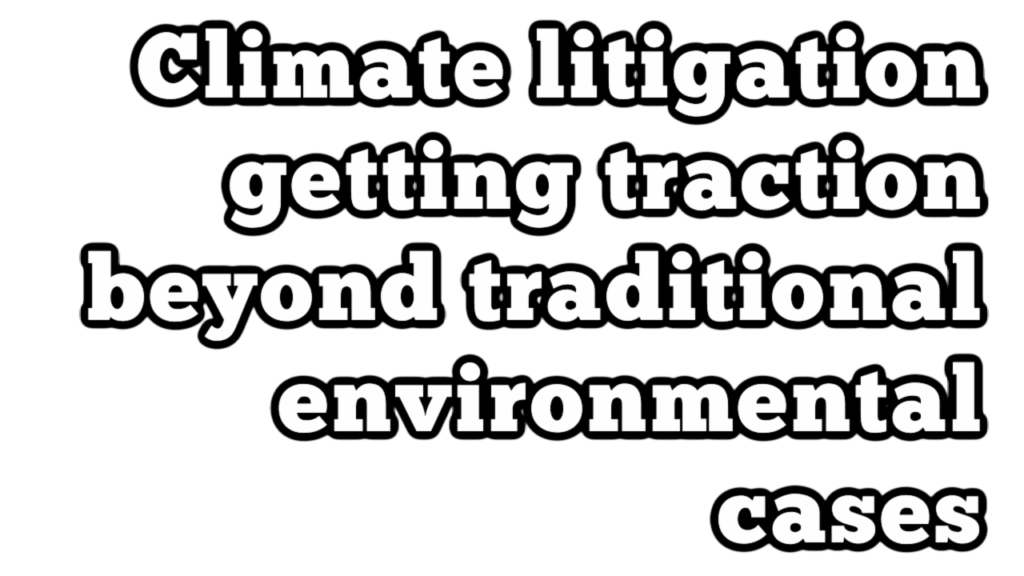Climate litigation getting traction beyond traditional environmental cases

– Some recent cases indicate that courts around the globe are gradually becoming more receptive to holding companies responsible for their contribution to climate change.
– In addition to traditional environment law cases, lawsuits have been brought against banks, pension and investment funds for failing to disclose information on climate-related risks or to incorporate these risks into their decision-making.
This article from Katharina Theil of Leigh Day (based in the UK) notes how climate litigation is going strong. Here is an excerpt:
In October 2017, my colleague Jonny Buckley examined a number of US climate change lawsuits against major fossil fuel producers (‘carbon majors’), and considered whether these could pave the way for litigation against corporates in the UK. He concluded that although theoretically possible, the likelihood of similar claims being brought in the UK remained remote. This was primarily due to the difficulty in attributing specific damage to the carbon emissions of a particular company.
More than two years later, there has been much development in the global field of climate litigation.
Recent cases that have attracted particular attention include claims against states, such as Urgenda Foundation v the Netherlands (‘Urgenda’), and Juliana v US. In Urgenda, the Supreme Court of the Netherlands confirmed an earlier decision holding that the state had a duty to protect its citizens from ‘dangerous climate change’ in accordance with its obligations under the European Convention on Human Rights (‘ECHR’).
Even more recently, on 31 July 2020, in a case known as Climate Case Ireland, the Irish Supreme Court held that the Irish Government’s National Mitigation Plan was defective and ordered the Government to produce a more ambitious strategy.
Here’s a note from Jamie Broderick about this article entitled, “Climate litigation is coming for the private sector”:
In a climate emergency, it is natural for people to argue for governments to enact new regulation and legislation to force behaviours, especially by corporates. But often the rules are already in place, and just need enforcing. And sometimes the offenders are themselves government entities.
Climate litigation is emerging as an important tool to enforce compliance with existing obligations, mostly for governments, but increasingly for corporates.
And as for pensions, don’t forget the case of 24-year-old Mark McVeigh (see this fascinating Bloomberg article), who forced his pension fund in Australia to manage climate risk properly. Given the similarities between the Australian legal system and those in the US and the UK, I would think pension funds there should also be thinking hard about their obligations to members.
